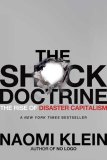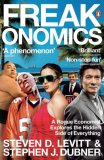Summary | Excerpt | Reading Guide | Reviews | Beyond the book | Read-Alikes | Genres & Themes | Author Bio

A Brief History of the Twenty-first Century
by Thomas FriedmanReviewer opinion is divided over Friedman's latest, The World Is Flat, (following
The Lexus and The Olive Tree).
Those who are very familiar with the
subject find it to be a bit of a damp
squib, but those who aren't (or, more to
the point, those who keep in mind
that most of the reading public are not
experts on globalization) feel it is a
lively and provocative read supported by a
swirl of anecdotes showing first hand how
globalization is changing the lives of
individuals all around the world, and suggesting how companies, countries and
individuals will need to adapt if they wish
to come out on top in our new flattened
world. Friedman's advice for the US in particular
is to invest in education, technology and
training (haven't we heard that a few times before?)
First published in April 2005, a revised edition was published in July 2006 with
100 pages of new content. A paperback was due to be released in July 2006
but, due to the continuing success of hardcover sales, publication was put off
until a couple of weeks ago. The paperback edition includes two new chapters: on how to be a political activist and how to manage our reputations and privacy in a world where we are all becoming publishers via the internet. Various statistics have also been updated.
If you're looking for alternative points of view, The Economist
suggests two books as alternatives to Friedman's:
In Defense of Globalization by Jagdish Bhagwati and
Why Globalization Works by Martin Wolf (both published in
2004). Another book of possible interest is Three
Billion New Capitalists: The Great Shift of Wealth and Power
to the East by Clyde Prestowitz (published in June 2006).
Representative Reviews:
"....This is all familiar stuff by now, but
the last 100 pages on the economic and political roots of
global Islamism are filled with the kind of close reporting
and intimate yet accessible analysis that have been hard to
come by." - Publishers Weekly (starred review).
"If anyone should be able to explain the many complicated
political, economic and social issues connected to the
phenomenon of globalisation, it should be [Friedman]. What a
surprise, then, that his latest book is such a dreary
failure... Mr Friedman has discovered his metaphor for
globalisation, and now nothing will stop him. He shows his
readers no mercy, proceeding to flog this inaccurate and empty
image to death over hundreds of pages." - The Economist.
![]() This review
first ran in the August 9, 2007
issue of BookBrowse Recommends.
This review
first ran in the August 9, 2007
issue of BookBrowse Recommends.

If you liked The World Is Flat, try these:

by Naomi Klein
Published 2008
The bestselling author of No Logo exposes the rise of "disaster capitalism" and destroys the myth of the global "free market".

by Steven Levitt, Stephen J. Dubner
Published 2006
Which is more dangerous, a gun or a swimming pool? What do schoolteachers and sumo wrestlers have in common? Why do drug dealers still live with their moms? How much do parents really matter? What kind of impact did Roe v. Wade have on violent crime? Freakonomics will literally redefine the way we view the modern world.
Your guide toexceptional books
BookBrowse seeks out and recommends the best in contemporary fiction and nonfiction—books that not only engage and entertain but also deepen our understanding of ourselves and the world around us.